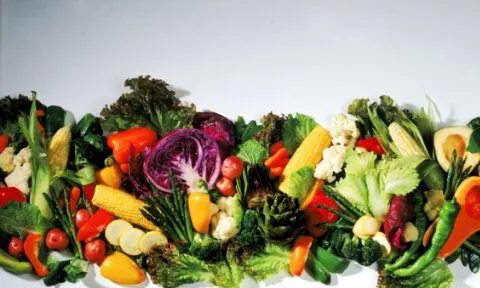Ah, the dreaded diet. It hits the top of our New Year’s Resolutions. It is revisited a few more times throughout the year with goal weights set for birthdays, vacations and high school reunions. The weight loss industry has an estimated value of 68 billion dollars (1) and there is every reason to believe that trend is going to continue to climb.
With all that money pouring into this industry, you would think that we would have a healthy, fit population, right? Not even close. We’re moving in the opposite direction. Obesity rates in Canada are climbing, aggressively. Before we look at the rates, we should lay down what it means to be obese.
How Do We Define Obesity?
Obesity is a calculation of your weight (in kilograms) divided by your height (in metres) squared. For example, say you are 5′ 6” and weigh 160 pounds. First we’re going to convert your height and weight to metres and kilograms.
5′ 6” = 1.68 m
160 pounds = 72.73 Kg
Calculating BMI:
72.73/ (1.68) 2 = 25.79
Your BMI rates go as follows. If you have a BMI under 18.5 you are extremely underweight. If your BMI falls between 18.5 and 25 you are considered a healthy weight – or “normal”. If your BMI is between 25 and 30 you are overweight. If your BMI is above 30 you are considered obese.
According to the government of Canada, in 1978 49% of the population over 18 was considered obese. In 2017, that number has soared to 64%. And that doesn’t include the burgeoning population of obese teens and children.
So where is the disconnect? We have a population investing millions of dollars in trying to lose weight and we’re failing miserably. And the costs are enormous. Obesity dramatically increases Type 2 diabetes, heart disease and some forms of cancer, not to mention the strain and toll obesity takes on joints and limbs, mobility and self-esteem.
Current Diet Trends
So, we have an overweight population actively trying to lose weight and failing more often than not. Enter the diets. There are hundreds of diets and weight loss plans out there: intermittent fasting, fasting, cleansing, green tea diets, cabbage diets, vegan, vegetarian, Paleo…the list goes on and on. But right now, there are two diets at the forefront: High Fat Low Carb and Low Fat diets.
These diets are not new. In fact, dietary guidelines have promoted a low fat diet since the 1950s. Things shifted in the 1970s with the advent of the Atkins Diet and others like it, which promoted low carb eating as the ticket to weight loss. Evaluating the efficacy of either diet hasn’t been that straight forward. In the past, studies have used samples that were too small to say definitively whether one was better than the other. That is, until now.
What Does the Research Say?
Stanford University recently conducted a major study with 609 participants between the ages of 18 and 50. All the participants were overweight or obese and relatively healthy. They were randomly selected to eat a “healthy low carb” or “healthy low fat diet” for one year. The study was called DIETFITS (Diet Intervention Examining The Factors Interacting With Treatment Success).
Whether you choose a high fat or low fat diet, one thing is certain: eat your vegetables!
What exactly made either of these diets healthy? Well, whether you were in the low fat or the low carb group, you were encouraged to eat a lot of vegetables and greatly reduce or eliminate added sugars, and refined grains. They were also encouraged to eat whole foods that were minimally processed, packed with nutrients and made at home as often as possible. They weren’t instructed to count calories or even limit portions.
From the Berkeley Wellness Newsletter, “ The low-fat group was advised to limit foods such as vegetable oils, fatty meats, whole-fat dairy, and nuts. The low-carb group was advised to limit foods such as grains (including cereals), starchy vegetables, and beans. Neither group was explicitly instructed to limit calories or to weigh foods. Both were encouraged to exercise moderately.”
The first 8 weeks of the diet (which lasted a year) were really restrictive. The low carb group had to limit their carb intake to 20 grams a day. To put this context, a banana has 23 grams of carbs and a bagel has 43. The low fat group similarly had 20 gram cap of fat per day. That looks like 4 ounces of salmon with 1/2 tablespoon of butter). After 8 weeks, both groups could add carbs/fat at a rate of 5 -15 grams per week until they reached a maintenance level – meaning the intake level they could stick to and feel full and satisfied.
The result? Good news and bad news. The good news is both groups lost on average about 12 to 13 pounds (with some losing much more and others gaining much more). The bad news, there was no clear winner. Success had less to do with the type of diet and more to do with a participant’s ability to modify there eating and stick to it.
Extreme diets are by their very nature destined to promote failure. Most of us can endure or shift an aspect of our life especially if we say to ourselves, “I just have to get through the next 3 weeks.” Once the timer is off, we just revert to our old habits and often times with a vengeance. Diets fail because we see them as short term and they are absolutely not. You have to be willing to make changes you can stick to for the long haul.
Conclusion
So what are the key takeaways? Eat plenty of vegetables. Make consistent healthy choices for all your meals. It doesn’t make sense to have a salad for lunch so you can have chips and dip for dinner. Avoid processed sugars and grains, avoid processed foods and start cooking and preparing your own meals!
Endnotes:
1 (https://blog.marketresearch.com/top-6-trends-for-the-weight-loss-market-in-2018)
Sources:
Berkeley Wellness Newsletter
www.canada.ca
Lisa Dickie, Owner of Dickie's Cooking School
Lisa Dickie is the owner of Dickie’s Cooking School in Toronto’s East End. The school specializes in small, hands-on cooking classes for anyone age 4 and up. We provide after-school programming, adult workshops, Date Nights, March Break and Summer Camps, plus private and semi-private lessons. Each class can be adapted for vegan, vegetarian and gluten-free diets. A new block of classes starts in April.
For more information visit dickiescookingschool.com.
Looking for ways to broaden yours or your kids home cooking skills? Dickie’s Cooking School has a new block of classes and workshops starting in early April. If you book a cooking class, use the promo code EARLYBIRD to get 15% off. Expires March 24, 2019.
https://dickiescookingschoolschedule.as.me/classes
If you have enjoyed this blog and would like to learn more about health and wellness from our team of expert practitioners, follow us on Facebook and Instagram.



